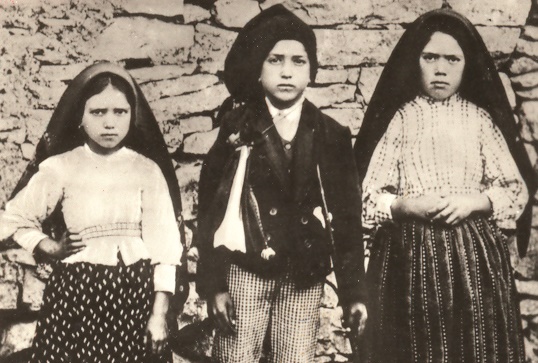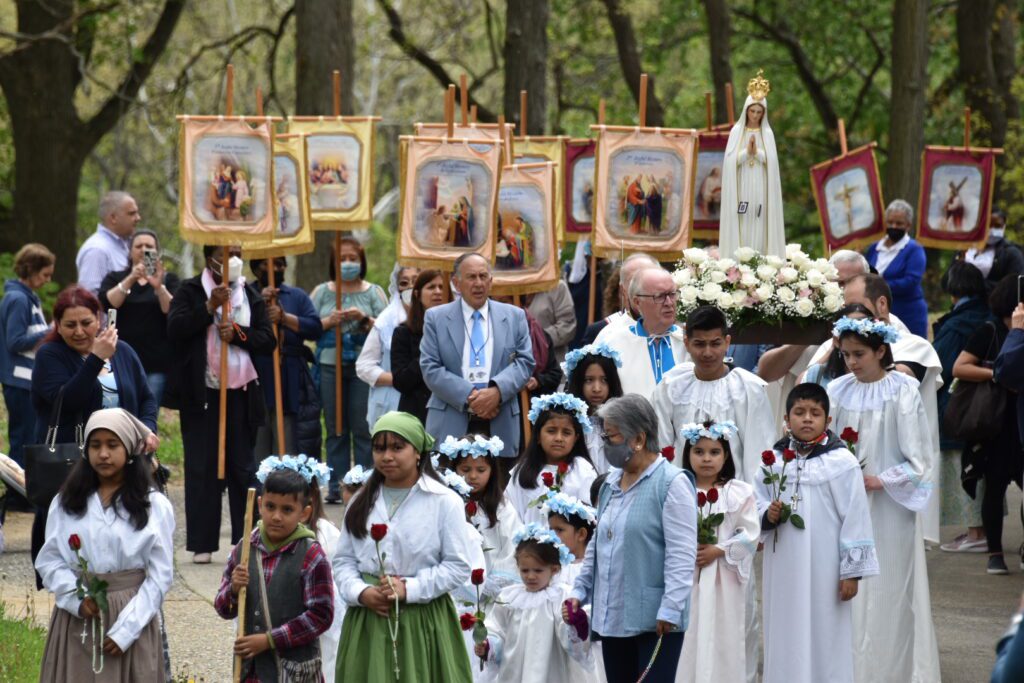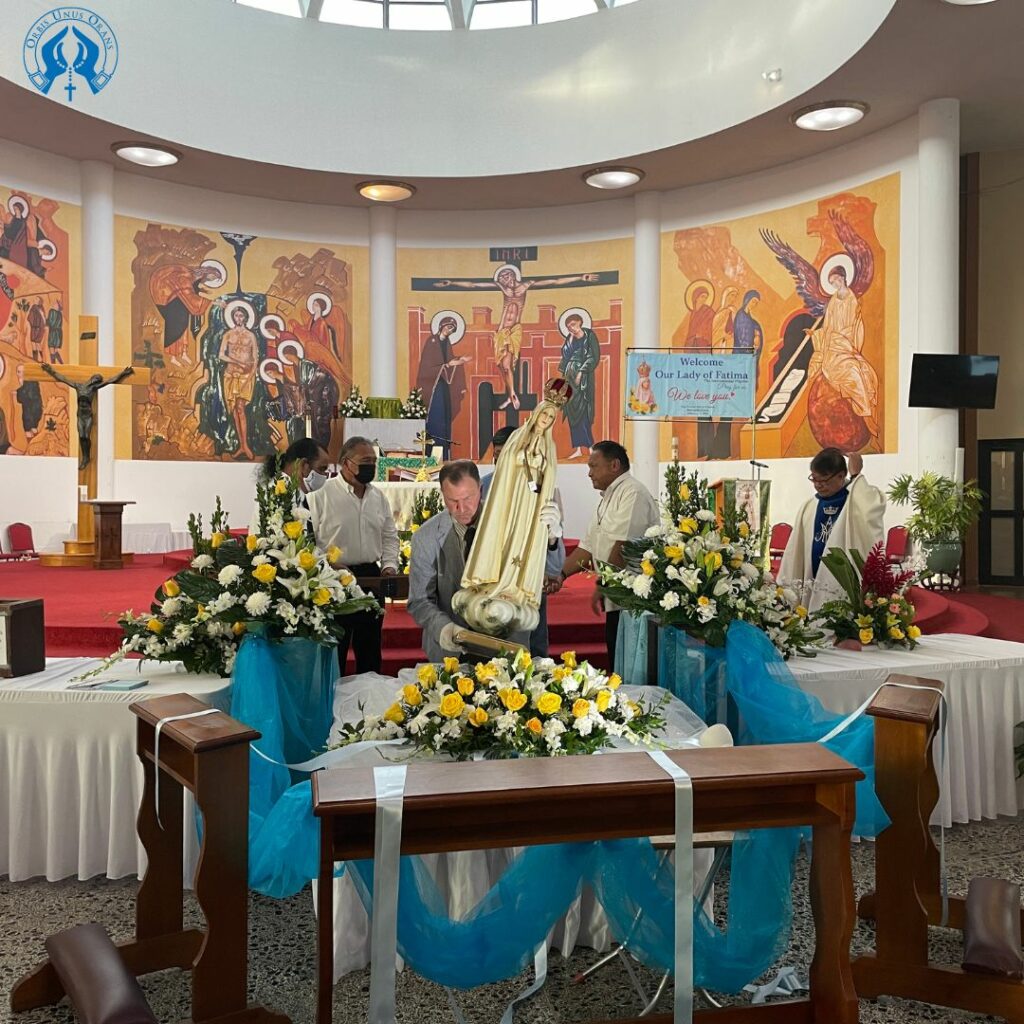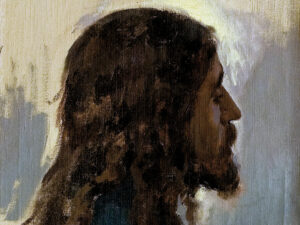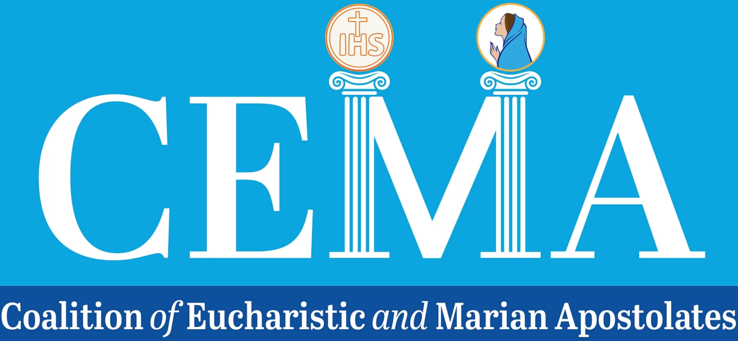by Barb Ernster –
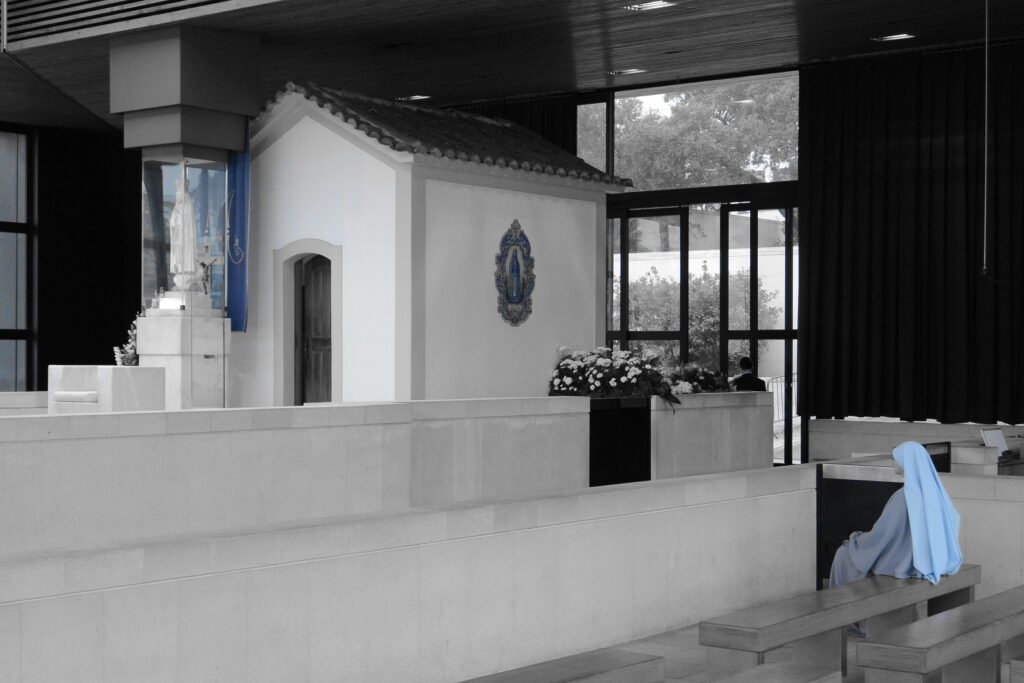
At the very first apparition at Fatima on May 13, Mary asked the three seers, “Are you willing to offer yourselves to God and bear all the sufferings He wills to send you as an act of reparation for the sins by which He is offended and in supplication for the conversion of sinners?”
Lucia would later say that she had no idea what Our Lady was asking of them, but they were so enamored with her beauty, she answered “Yes!” What came next was Our Lady’s assurance that they would have much to suffer, but God’s grace would comfort them.
In 1946, our co-founder, John Haffert, met with Sister Lucia to find out exactly what Our Lady wanted of the lay people. By then, World War II had happened and Europe was devastated. Russia was spreading its atheistic ideology and was threatening to take over the world.
John assumed it was the praying of the Rosary. He was surprised when Sister Lucia told him the essential request of Our Lady of Fatima was conveyed to the children in that very first question on May 13 – “Are you willing…”
She emphasized that it is the fulfillment of one’s daily duty, according to one’s state in life, and the sanctification of this effort in reparation for sins and the conversion of sinners, which is the primary condition for the turning back the tide of evil which threatens the world today.
This request was most essential because Mary is inviting us to unite all our sufferings with the sufferings of Christ, just as she did. To accept and bear with submission all that happens to us makes everything about our day holy and at the service of God’s will. It invites us to trust in Our Lord and surrender all things to Him.
Our Lady taught the children a little prayer to say whenever they made some sacrifice: “Oh Jesus, it is for love of you, for the conversion of sinners and in reparation for the sins committed against the Immaculate Heart.”
The children prayed this constantly and it became a habit for them to say it whenever they were experiencing some suffering, no matter how small or large. They said the prayer whenever they were misunderstood or teased, or when they had to be patient with the pilgrims, or endure another round of questions, not to mention the sacrifices they undertook themselves.
It is the little sacrifices born patiently that help us to grow in the virtues.
Sister Lucia wrote in her private notes later in life: “Small thorns can cause greater pain than large ones, for it depends on where they hurt. Our lives are strewn with large and small sufferings, most of which come from people with no intention of hurting us. This inevitably happens in all forms of life.”
Through the little prayer of offering, Mary was teaching the children what is known as recollection in the spiritual life. Recollection helps you recall God’s presence in your soul and fix your attention upon Him and His divine perfections throughout your day. It helps withdraw your mind from external and earthly affairs in order to attend to God and divine things. Without this habit of recollection, it is difficult to advance in the virtues.
So, Mary drew the children deeper into the spiritual exercises, asking for sacrifices, but giving them a little tool to help them surrender their wills to God, which would help form them in holiness. This was the first step in actually living out devotion to the Immaculate Heart.
Lucia also stressed that the Rosary is indeed important, because it is one of Our Lady’s “principal aids given to us to facilitate the sanctification of our daily duty.”
Jacinta, after the vision of hell, wanted to offer everything as a sacrifice so that sinners would not go to hell. It became her special charism and she became a victim soul at the request of Our Lady.
Lucia, on the other hand, models this request in what she calls, “the long, hard road of martyrdom that comes with daily living.” Her path was more like ours in that we have to face the normal, mundane difficulties of everyday life and all that God asks of us. She did this for 87 years after the apparitions, living out faithfully and with joy her complete surrender to the Lord.


Barb Ernster is the communications manager and editor of Soul Magazine for the World Apostolate of Fatima, USA.


